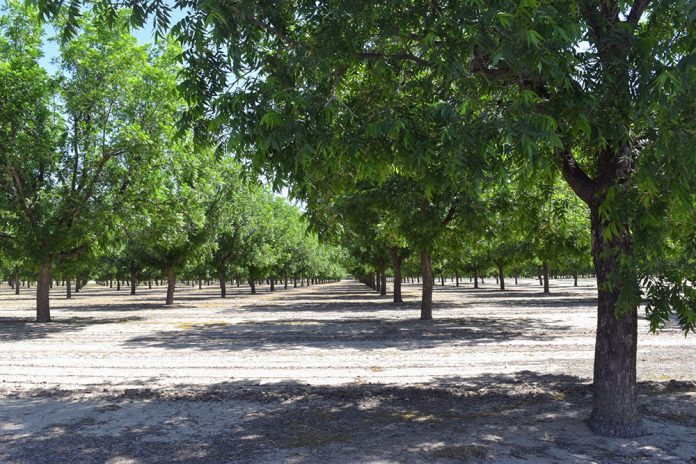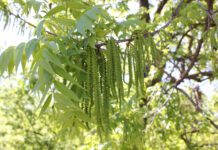
The National Pecan Federation (NPF) is pleased to continue to advance the work on behalf of the pecan industry in trade and other agricultural policy areas.
NPF was excited to learn in February that the India Ministry of Finance had released their proposed 2023 Union Budget and updates to custom duties that included a 70% reduction in the import tariff for pecans, from 100% to 30%. This was a significant positive change for the pecan industry that opened the U.S. pecan export market to India. According to recent American Pecan Council studies, the industry could see an increase in trade sales from $1 million to $50 million to $60 million by 2030. The timing of India’s reducing the tariff was particularly important due to the loss of a large segment of the pecan market in China due to tariffs on U.S. pecan imports.
Reducing the import tariff on pecans in India has been a trade priority for NPF, which was established in 2018 by pecan growers and shellers to unite the pecan industry and advocate with one voice in Washington, D.C.
“This is great news for the pecan industry,” said NPF Chairman Larry Don Womack. “NPF has worked hard over the last few years on reducing this tariff to open the U.S. pecan export market to India. Pecans are grown in 15 states and have a significant impact on these rural economies. Opening the India market will be a great opportunity for our industry to expand and grow.”
Earlier this year, NPF Executive Board Member Marianne Brown attended a roundtable discussion hosted by U.S. Senator Jon Ossoff (D-GA) with U.S. Trade Representative (USTR) Ambassador Katherine Tai and USTR Agriculture Ambassador Doug McKalip. At the meeting, Brown was given the opportunity to voice the pecan industry’s concerns and priorities as they related to global markets and, most importantly, India.
“Expansion of the U.S. pecan export market to India is essential to the health of the pecan industry. Over the last few years, NPF has worked with Senator Ossoff and other members of Congress on this issue with USTR and the U.S. Department of Agriculture to advocate for lower tariffs to India. We are pleased with this outcome and believe the reduction in the tariff will be beneficial to the U.S. pecan industry,” added NPF Executive Board Member Jeff Worn.
Numerous members of Congress worked hard to reduce this tariff. U.S. Congressmen David Scott (D-GA), Sanford Bishop (D-GA), Austin Scott (R-GA) and U.S. Senators Ted Cruz (R-TX), John Cornyn (R-TX), Raphael Warnock (D-GA), Jon Ossoff (D-GA), Ben Ray Lujan (D-NM) and Martin Heinrich (D-NM) led efforts to encourage the Administration to prioritize efforts to reduce the pecan tariff in India.
Developing Markets
The American Pecan Council (APC) oversees the pecan industry’s Market Access Program (MAP) funding from USDA. This will be an essential tool for the pecan industry in developing Indian and other markets. NPF supports fully funding the MAP program in the Fiscal Year 2024 Agriculture Appropriations legislation as well as efforts to double the size of the MAP and Foreign Market Development (FMD) programs in the 2023 Farm Bill reauthorization for MAP and FMD.
These programs as well as domestic marketing efforts are overseen by the federal marketing order for pecan, APC and the research and promotion check-off program, the American Pecan Promotion Board (APPB). These USDA programs have been important to the marketing of pecans. Unfortunately, similar to the debate surrounding the 2018 Farm Bill, legislative efforts are being made to harm these programs. NPF signed on to a letter with other commodity organizations opposing S. 557 and H.R. 1249, titled “Opportunities for Fairness in Farming (OFF) Act.” This legislation, introduced by U.S. Senators Cory Booker (D-NJ) and Mike Lee (R-UT) and U.S. Congresswomen Dina Titus (D-NV) and Nancy Mace (R-SC), targets commodity research and promotion boards, better known as “checkoff” programs. Proponents of this bill argue this legislation would increase transparency and close perceived loopholes in the statutes enabling checkoff programs.
However, as stated in the letter signed by NPF, this legislation would substantially undermine the research and promotion boards’ ability to promote U.S. agriculture.
Research and promotion boards exist to develop new markets and strengthen existing channels for specific commodities while conducting important research and production activities. They also work to educate consumers on behalf of a particular commodity to expand total demand to the benefit of all producers. However, if passed, the bill would stymie research collaboration, undermine producer direction of these programs and unnecessarily restrict implementation of critical checkoff functions. The coalition of organizations on the letter included the American Farm Bureau Federation, the American Soybean Association, National Cotton Council and many others.
Other Funding
In addition to trade issues, NPF has worked on increased funding for pecan processing modernization and pecan breeding at USDA and land grant universities. The U.S. House Appropriations Committee continued funding of these initiatives in their Fiscal Year 2024 legislation. Separately, the Committee included language to protect pecan reports produced by the National Agricultural Statistical Service (NASS) at USDA. Anticipated NASS budget cuts have raised concerns about pecan reports. The language included is below:
The Committee expects NASS to continue its ongoing activities at the frequency levels assumed in Fiscal Year 2023 including barley acreage and production estimates; the Bee and Honey Program; the Chemical Use Data Series; the Floriculture Crops Report; and Fruit and Vegetable Reports including in-season forecasts for noncitrus fruit and tree nut crops such as pecans.
The House and Senate Agriculture Committees are wrapping up hearings and listening sessions for the 2023 Farm Bill. Pecans have been most interested in crop insurance, research, disaster, nutrition and other provisions. With reference to nutrition, NPF is concerned about the exclusion of pecan and other tree nuts from the Fresh Fruit and Vegetable Program. Leaders on the Agriculture Committees are working with the Budget Committees and the Congressional Budget Office on various farm bill proposal costs. The 2018 Farm Bill expires on September 30, 2023.










